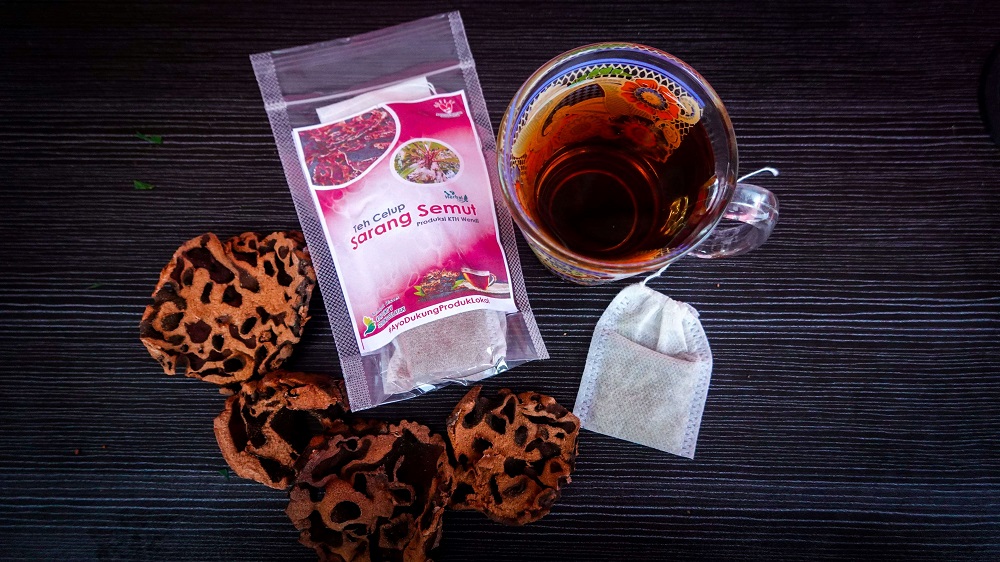
Sarang semut (Myrmecodia spp) is a plant that is commonly found in Papua and is believed to have various health benefits. The word “Myrmecodia” derives from the Greek language and means “surrounded by ants”. The plant itself features a perforated shape and is indeed used as a nest by ants. The people of Wendi Village in South Sorong Regency, West Papua have for many years sold sarang semut in the form of dry lumps directly to collectors in Sorong City. In an effort to improve the economic conditions of the villagers around the forest area, as well as to increase the capacity of the community to manage its local resources, the West Papua Forestry Service, supported by FORCLIME, held recent training sessions on the production of tea from Myrmecodia or sarang semut tea. Sarang semut (Myrmecodia spp.) is a potential non-timber forest product from Wendi Village which has for long been managed as a traditional medicine. The training was given to three forest farmer groups in Wendi Village, namely Wendi 1, Wendi 2 and Lembah Hijau, while the training sessions, which were attended by 116 people (54 male and 62 female), were held over two days from 28 -29 November 2022. The participants, apart from being taught how to make tea from the Mymecordia spp plant, were also taught how to package their herbal drink into a purchasable product ready for sale.
Currently, the raw materials required for making the sarang semut tea are sourced directly from the natural environment. To maintain the sustainability of these raw materials, forest farmer groups in Wendi Village include sarang semut cultivation as a part of their work programme.
The next stage after this training is assistance for forest farmer groups in relation to the clinical testing of their products so that they will ultimately be able to secure sales permits from the Food and Drug Supervisory Agency (BPOM). Facilitation will also be provided to forest farmer groups in relation to the marketing of their products through marketing training so that they will be able to properly access the available markets, both traditional markets and various types of marketplaces.
For more information, please contact:
Melanesia Brigite Boseren, Junior Advisor for Rural Livelihood, Forest Management and Conservation
Nita Yohana, Adviser for Sustainable Forest Management and Coordinator for West Papua Province
Mohammad Sidiq, Strategic Area Manager for Sustainable Forest Management and Coordinator for Papua and West Papua Provinces






